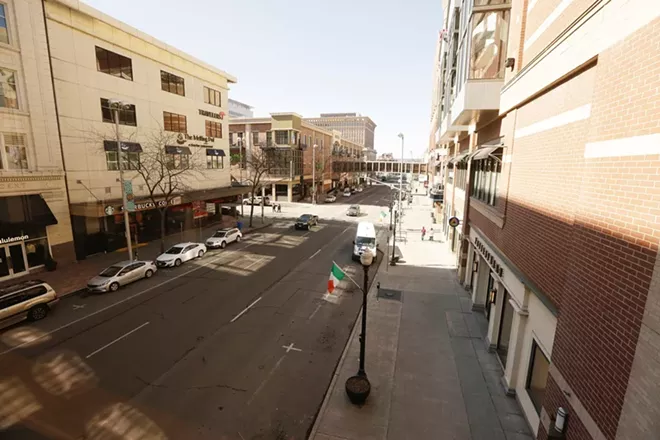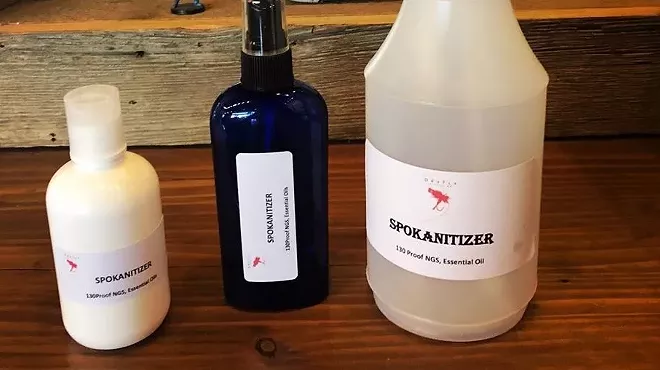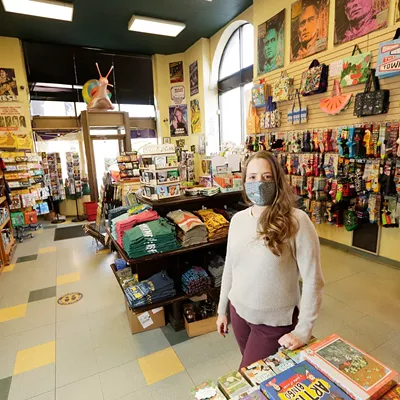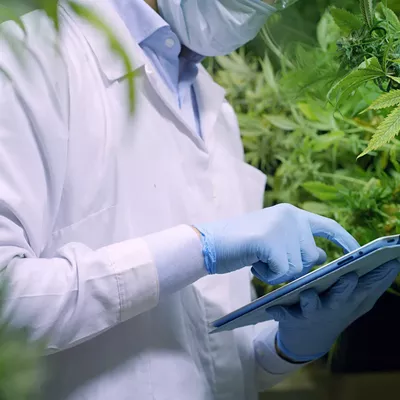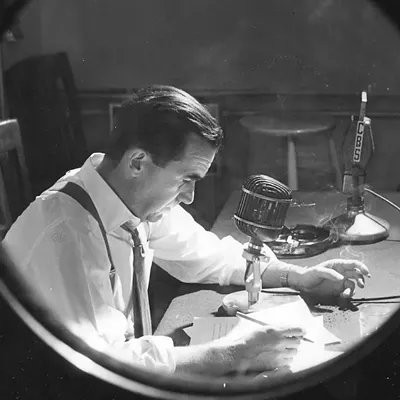There’s a cliche that always follows a big tragedy — something we say after natural disasters, economic collapses, school shootings, acts of terrorisms. It’s the one about how, despite the pain and suffering, in times like these, more than ever, we come together.
When the power’s out, we literally huddle together for warmth. We rush to help our elderly neighbors, we shovel the snow that’s buried their walkway, we rescue them from rising floodwaters. We turn high school gymnasiums into impromptu triage centers, where displaced people get aid.
We mourn together at funerals. We hold rallies and candlelight vigils. We put on galas and fundraisers and fun runs for victims. We flood into our churches, maybe for the first time in decades. We pack sporting events, where we hold a moment of silence or tributes. Charities and church groups rush to rebuild. We join support groups to process the grief.
But not this time.
That’s the truly sinister part about COVID-19. In a very literal sense, we can’t come together.
Doctor’s orders.
The bishop tells us that Mass is canceled. Parents tell their kids they can’t play on the playground. The local alt-weekly spends an issue telling you both about all the best places to go in Spokane, and also why you should stay home. Psychologists cancel their office visits, allowing sessions only by video chat.
Our psychological immune system — our sources of comfort, our coping methods for battling through a crisis — has been weakened by the institutional medicine we’re using to treat the disease.
Even an act as simple meeting a friend requires going through a host of epidemiological and exponential calculations. How many other folks did they come into contact with in the last two weeks? Do they have any elderly relatives? Are they now, or have they ever been, in attendance at a party with more than 10 people?
This is a state of our quarantine, sheltered-in-place between two sets of contradictory facts: Everything we know about epidemiology says that close interactions are incredibly dangerous. But everything we know about psychology says that isolation is also dangerous. Imagine, two months ago, walking into a room full of friends and everyone refuses to give you a hug, shake your hand, or even get within six feet of you. You might feel like a reject, like a loser, like you’re living through middle school all over again.
Right now, we’re all pariahs. We’re all prisoners, granted little more than phone calls with our loved ones on the other end of the glass, with no knowledge of when we’ll be released.
History tells us that all the horrors of World War I didn’t impact the national suicide rate, but the 1918 flu epidemic sent it soaring. Those deaths can be attributed to grief and to the neurological effects of the sickness, but also to the toll taken by isolation and quarantine.
This last week, the atmosphere has become heavy, like disquieting quiet before a big thunderstorm. It's weighed down with fear, with loneliness.
For those clinging to the edge, COVID-19 has been stamping on their fingers.
For two months, Spokane resident Paul McNutt has been going to local Narcotics Anonymous meetings. It’s not enough to be sober, he learned. You have to have support to stay that way. “I mean, normal people just have no idea how difficult it is,” McNutt says.
“When every cell in your body is addicted to a chemical and you stop taking that chemical? It’s life-changing.” And then, as if things weren’t tough enough, his grandma died last week.
"I really needed a meeting,” McNutt says. But gathering dozens of people in a small room — like with NA or AA — had been forbidden.
Most of the Narcotics Anonymous meetings that he’d been relying on had been canceled.
It was devastating. It was lonely. It was exactly the sort of moment where relapsing feels inevitable.
“I was so completely lost,” McNutt says. “My parents went over to meet with all the other siblings, so I had the house to myself. I was just walking in circles around the house. I didn't know what to do.”
But one thing saved him: Tucked away in his wallet, he had a pamphlet from back when he first joined NA, where other members had written their names and numbers: A call-a-friend lifeline.
And so he called his buddy, one of the leaders in Narcotics Anonymous. His buddy led him through the Serenity Prayer — the one about changing the things you can, but accepting the things you can’t. "I was able to work through it, without a relapse," McNutt says. It’s just, that in this new world, there’s a lot of tough stuff you have to accept.
This new age is particularly cruel to the elderly. Because of who COVID-19 is most likely to kill, it’s most important that elderly people are isolated: It’s why assisted-living facilities have been instructed to ban even close family members from visiting their relatives.
And yet, when the elderly feel isolated or lonely, research shows, they experience a spike in everything from heart disease, depression, Alzheimer’s and death.
Just a week and a half ago, my family and I were still trying to convince my grandparents that it was a bad idea for them to keep going to McDonald’s every morning with their posse of old people.
My 89-year-old Grandpa Tracy responded with the steely-eyed defiance of William Wallace staring down the British: “We would rather die!” He was almost joking.
For my grandparents, going to McDonald's every morning wasn’t about hotcakes or McGriddles. It was about camaraderie. They’d been meeting the same cadre of senior citizens there for years and years. When Gov. Jay Inslee banned dining in at restaurants last week, that was lost. Other losses were even more painful.
“My sports are gone,” Grandpa says. “Even Bloomsday.”
For years, he was the booming voice announcing runners at the Bloomsday finish line. A half-century ago, he was a coach of the U.S. Track Team. He remembers bonding with his dad over the shared anguish of watching the Cougar football team losing, once again. Sports are embedded deep within his identity.
It was never true, of course, that Spokane’s sole source of hope was Gonzaga basketball. But it’s also true that those things really do matter, in the same ways that New Year’s Eve parties and Fourth of July bashes matter.
They’re sources of connections, of community, of a common cause. It’s why research shows that sports fans feel less alienation, even when they’re rooting for the Knicks. Games are bursts of narrative and hope that drive us forward, especially when times are tough, to see what happens next.
“I didn’t use to wash my hands, and I do now,” Grandpa Tracy says. “I really don’t want to die. I want to hang around and see how the Seahawks do. I want to see if Mark Few can win a national championship.”
When we lose basketball games and concerts and potlucks and church services, we lose more than entertainment. Everywhere we look, these little small mercies that ease the pain have disappeared.
Every Tuesday, realtor Bekah Lindsey and two other musicians with the Songs for Kids Foundation used to go to Sacred Heart's Children Hospital to sing for the kids, performing everything from Moana to Nirvana.
“There was a noticeable difference with kids and their parents when we've left,” Lindsey says. “Like, everybody's smiling.”
They’ve been through flu seasons, of course, where the singers had to wear masks. They’ve done hallway concerts for immunocompromised patients. But this time was different. With the coronavirus so easy to spread, they couldn’t justify continuing.
“We didn’t really say goodbye. We’ll be back, but I don’t know when,” Lindsey says. “I can't imagine how scared [the kids] are now. They were already scared because they were in the hospital, but now it's something different.”
Things are about to get a lot scarier.
Last week, unemployment claims shot up by 116 percent. One federal reserve bank chief predicts that unemployment is about to spike to as high as 30 percent. The worst year of unemployment on record, during the depths of the Great Depression? 25 percent.
Sales tax revenue is going to nosedive, starving Washington state’s budget right when we need it most. More and more people will die from coronavirus, but as, of Thursday, funerals have been banned.
“I remember people beating the crap out of each other over a half-used cigarette in the gutter during the Depression,” Grandpa Tracy tells me. “I remember World War II. I don’t remember anything like this.”
But local psychologist Robert Maurer suggests that fear isn’t as dangerous so much as the fear of fear itself.
“Realizing that being lonely and afraid, during this time of great uncertainty and upheaval, is normal tends to quiet the heart because you're not angry at yourself for being afraid,” Maurer says.
So, accept the fear, he says. There’s plenty you can do to protect yourself psychologically. Go on a run or bike ride. Journal. If you're living with your family, spend time with them. If not, call them on the phone. And see what you can do to help others.
That’s the good news: We’re figuring out how to harness that same instinct that drives us to rush into the floodwaters into this new environment.
We spent the last five years decrying the toxic impact that the internet and social media have had on our national psyche, but right now, it’s one of our most powerful weapons.
In Spokane, multiple Facebook groups, with names like “Love in Practice” and “Reach Out Spokane,” have popped up to identify ways to do something to help. We’re holding church services inside our cars. We’re transforming liquor into hand sanitizer. We’re live-streaming concerts from home.
In the case of the Songs for Kids Foundation, Lindsey says, they’re looking into using a video service to stream performances for the kids at the Children’s Hospital. The local Narcotics Anonymous, McNutt says, is still holding small meetings with less than 10 people, at Roots hall and Our Club. Last week, the Northeast Washington Area Narcotics Anonymous chapter purchased a Zoom virtual meeting account, so they could hold their meetings over video chat.
We’re adapting as fast as we can. We have to learn to love without hugging, to build trust without handshakes, to keep everyone at arm's length but still lend a hand. It’s the sort of dramatic transformation that McNutt is familiar with.
“In recovery, there's only one thing you have to change, and that's everything,” McNutt says.“You have to change your whole outlook on life, you have to change your ethics, where you go, what you do, what not to do."
There’s only one thing that COVID-19 will force us to change. And that’s everything.

